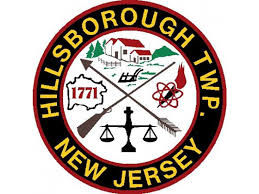By Andrew Martins, Managing Editor
Despite the din of discontent from Democrats on Monday, the Hillsborough Township Committee formally adopted its $28.9 million budget for 2017., The vote came roughly a month after the spending plan, which calls for $18.9 million to be raised through taxes, was introduced by the governing body., Just as they had done in the past, members of the committee, all Republicans, hailed their budget as a “fiscally responsible” plan for keeping its tax rate flat and the levy under a state-mandated two percent cap., “This budget is a direct result of this township committee’s commitment to continued financial responsibility,” Deputy Mayor Gloria McCauley said., Since the inception of the two percent tax levy cap by Gov. Chris Christie in 2011, officials in Hillsborough have managed to keep the budget under that threshold. This year’s budget marks a tax levy increase of approximately 1.994 percent., Officials said the township was able to keep that figure under the state mandated two percent cap without utilizing allowable levy cap exceptions for the seventh consecutive year., “(Staying under the cap) saves our Hillsborough taxpayers $194,071 just this year,” Mayor Carl Suraci said., For the third year in a row, officials also highlighted the passage of a flat tax rate in the budget. Since 2015, taxpayers contribute to the municipality’s daily operation at a rate of 33 cents per $100 of assessed value., How the municipal tax rate affects a homeowner’s annual taxes depends on the assessed valuation of their property. For example, homes assessed at $350,000 have had to pay $1,155 a year in taxes since 2015., Last year, if a home was assessed at the township average of $371,718, that homeowner paid approximately $1,227 in taxes. If that same house was then valued at the 2017 average of $377,318, the homeowner will now pay $1,245 in municipal taxes., Officials said the taxes have continued to remain flat thanks to an increase of $112.5 million in the township’s total ratable value., Officials said the proposed budget saw an overall decrease from the previous year, as attrition in the police department brought a $43,288 reduction in public safety salaries, insurance and benefits costs decreased by $182,483 and utilities costs dropped by $83,000. The mild winter also caused a reduction in public works costs by $115,000., In total, the budget saw a spending reduction of $423,771., Though the tax front was touted by officials, the anticipated revenue of just more than $10 million for 2017 showed a downturn from the previous year due to decreases in licenses and fees, municipal court revenues, interest on delinquent taxes and uniform construction code fees., Officials said decreases in the township’s court revenues stemmed from a reduction in available grants for enforcement funding., State aid also remained at the same level since 2010, with funding from Trenton totaling nearly $3.27 million., Though officials touted its spending reductions and flat tax rate as a “business-like approach to government,” resident and Democratic candidate for the committee Harry Burke contested that even under the cap, the taxes were still a “significant increase” in the annual tax bill., “If you look beyond the time of imposed caps, you would see a shocking change. In 2002, the municipal tax levy was $9,180,188 and in 2017, it is proposed at $18,937,386,” he said. “The tax burden has more than doubled over 15 years.”, Burke’s running mate, Jane Staats, also voiced her concerns over the budget. During her remarks, she posited that the committee’s refusal to take any exceptions to the tax levy cap in order to pay for “additional health benefit costs, pension obligations or for needed capital improvements” has had an impact on how the township operates., “The committee calls it a savings, but it is truly a choice that affects services,” she said. “When we don’t do maintenance projects today, they become reconstruction projects tomorrow.”, McCauley took umbrage with that charge, stating that the township didn’t cut any services at all as a result of the budget., “I don’t think that we’ve cut any services that the residents have expected. We may have made some shift changes – every year’s budget changes – you sometimes see revenues come and go,” McCauley said. “There are standards that we believe the residents deserve here and I would say that the residents are still receiving those.”, Staats also charged the committee with playing a “shell game” with municipal costs, citing the governing body’s decision to enter into a contract with Robert Wood Johnson for EMS services after opting out of renewing an agreement with Hillsborough EMS (HEMS)., “Rescue and extrication were previously performed by HEMS, and will not be included under the new contract with Robert Wood Johnson EMS. Now it will be the responsibility of the fire companies. So while this cost will be removed from the municipal budget, it will now appear in the fire budget at possibly greater cost,” Staats said. “All taxes ultimately funnel down to the same point – the pockets of homeowners.”, Township officials refrained from commenting on the EMS situation, since it is the subject of ongoing litigation.

